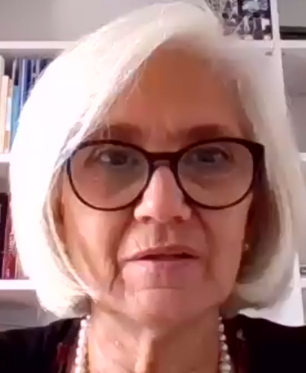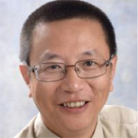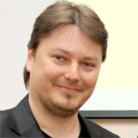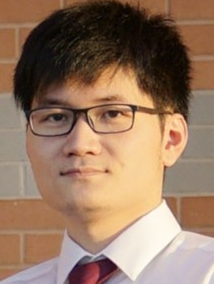

AIMEE2025: The 9th International Conference of Artificial Intelligence, Medical Engineering, Education
October 25 - October 26 , 2025 , Changsha, China
The 9th International Conference of Artificial Intelligence, Medical Engineering, Education (AIMEE2025)
Changsha, China
October 25-26, 2025
The 9th International Conference of Artificial Intelligence, Medical Engineering, Education (AIMEE2025) will be held on October 25-26, 2025, in Changsha, China. The conference is organized jointly by Wuhan University of Technology, the Polish Operational and Systems Society, Hubei University of Technology, and the International Research Association of Modern Education and Computer Science.
The AIMEE2025 will bring together the top researchers from Asian Pacific nations, North America, Europe, and around the world to exchange their research results and address open issues in Artificial Intelligence, Medical Engineering, and Education. The official conference language is English. All the papers need to be written and presented in English.
~^o^~ Please click here to submit your paper.~^o^~
💖 Conference Book has been published online. ( 20-01-2026)
💖 Conference Program. ( 21-10-2025)
💖 Call for Paper. ( 06-03-2025)
💖 AIMEE2024 conference book has been published online. ( 12-04-2025)
Publication Information
The conference proceedings of AIMEE2025 will be published by "Advances in Transdisciplinary Engineering- IOS Press", which is indexed by EI Compendex, SCOPUS, etc.
Authors are invited to submit original, unpublished manuscripts that demonstrate recent advances in the following areas of interest, but are not limited to:
Area 1:Artificial Intelligence
Neural Networks
Evolutionary Computing and Genetic Algorithms
Fuzzy Systems and Soft Computing
Ant Colony Optimization
Particle Swarm Optimization
Artificial Fish School Algorithm
Artificial Life and Artificial Immune Systems
Systems Biology and Neurobiology
Rough and fuzzy rough set
Knowledge Discovery and Data Mining
Supervised & Semi-supervised Learning
Evolutionary learning systems
Man-Machine Interaction
CIMS and Manufacturing Systems
Process Automation
Automobile Electric
Sensor Fusion
Intelligent Mechatronics and Robotics
Intelligent Automation
Knowledge Management and Knowledge Engineering
Management of Supply Chain and Logistics
System Theory and Control Theory
Nonlinear System and Control
Bayesian Network
Pervasive Computing
Modeling, Identification and Signal Processing
Fuzzy System and Fuzzy Control
Distributed Control Systems
Adaptive Control and Learning Control
Robust and H-infinity Control
Traffic Control
Communication Network Systems
Intelligence System Design
Intelligent Management of Enterprises in the AI Era
Intellectualization and Humanization of Management
Digital Economy and Smart Financial Management
News Communication in the Context of Media Integration
Area 2:Medical Engineering
Computational Proteomics
DNA and RNA Structure, Function and Sequence Analysis
Gene Regulation, Expression, Identification and Network
Structural, Functional and Comparative Genomics
Computational Evolutionary Biology
Data Acquisition, Normalization, Analysis and Visualization
Algorithms, Models, Software, and Tools in Bioinformatics
Any Novel Approaches to Bioinformatics Problems
Biomedical Imaging, Image Processing & Visualization
Bioelectrical and Neural Engineering
Biomaterials and Biomedical Optics
Biochemistry and Biotechnology
Methods and Biology Effects of NMR/CT/ECG Technology
Biomedical Devices, Sensors, and Artificial Organs
Biochemical, Cellular, Molecular and Tissue Engineering
Biomedical Robotics and Mechanics
Rehabilitation Engineering and Clinical Engineering
Health Monitoring Systems and Wearable System
Bio-signal Processing and Analysis
Biometric and Bio-measurement
Ethics and Humanistic Care in the field of Medicine
Supportive Psychological Intervention Program for Patients
Area 3:Education
Big Data and Education
Cloud Computing in Education
Computer Education
Computer Aided Instruction
Network University
Network Curriculum
Computer Network Education
Computer Distance Learning
Countryside Distance Learning
Education Information Technology
Educational Technique standard
Digit Sports Research
Sports Media Education
Classroom Instruction Research
Management Science Teaching Research
Lifelong Education Research
Special Crowd Computer Education
Technology Empowerment Classroom
Continuing Education and Vocational Training
Practical Teaching System, Methods and Means
Combination of Production and School and Collaborative Education
Paper submission due: September 5, 2025
Notification of paper acceptance: September 30, 2025
Final manuscript due: September 30, 2025
Registration and full payment due: October 8, 2025
Conference date: October 25-26, 2025
Chairs
Prof. Felix Yanovsky, Delft University of Technology, Netherlands
Prof. C.Z. Wang, Hubei University of Technology, China
General Co-Chairs
Prof. X.R. Hu, Wuhan Textile University, China
Prof. Q.Y. Zhang, Wuhan University of Technology, China
Prof. Yuriy Ushenko, Chernivtsi National University, Ukraine
Prof. Matthew He, Nova Southeastern University, Fort Lauderdale, USA
Program Committee Members
Prof. M. Wang, Wuhan Technology and Business University, China
Prof. Harrison Hao Yang, State University of New York at Oswego, USA
Dr. J. Su, Hubei University of Technology, China
Prof. L. Cao, Wuhan Technology and Business University, China
Prof. Orest Kochan, Lviv Polytechnic National University, Ukraine
Prof. Janusz Kacprzyk, Systems Research Institute, Poland
Dr. Rabah Shboul, Al-albayt University, Jordan
Prof. Y. C. Zhang, Business School of Hubei University, China
Prof. V.E. Mukhin, National Technical University of Ukraine "Igor Sikorsky Kyiv Polytechnic Institute", Ukraine
Prof. H. F. Yang, Waseda University, Shinjuku City, Japan
Prof. X. Jiang, East China Normal University, China
Dr. Q.L. Zhou, Shizuoka University, Japan
Prof. Y. Gu, Wuhan University of Technology, China
Prof. Irina Dovbischuk, Mount Royal University, Canada
Dr. X.J. Ma, Huazhong University of Science and Technology, China
Dr. Oleksii K. Tyshchenko, University of Ostrava, Czech Republic
Dr. W. H. Yue, Henan University of Technology, China
Prof. M. Y. Zhang, Wuhan University of Technology, China
Dr. Krzysztof Przystupa, Lublin University of Technology, Poland
Prof. E. Fimmel, Mannheim University of Applied Sciences, Germany
Prof. X. J. Wei, Wuhan Technology and Business University, China
Prof. M. He, Nova Southeastern University, Fort Lauderdale, USA
Prof. H. J. Xu, Xinjiang University, Urumqi, China
Dr. Essa Alghannam, Tishreen University, Syria
Prof. Z. Wei, South China Normal University, China
Prof. Roman Kochan, University of Bielsko-Biała, Bielsko-Biala, Poland
Prof. C.C. Zhang, Fengchia University, Taiwan
Prof. H. B. Xie, Fujian Normal University, China
Prof. X.F. Zhou, Wuhan Technology and Business University, China
Prof. D. W. Zhang, Guangdong University of Petrochemical Technology, China
Prof. A.U. Igamberdiev, Memorial University of Newfoundland, Canada
Prof. J. S. Dai, National University of Singapore, Singapore
Prof. Vitaly Deibuk, Chernivtsi National University, Chernivtsi, Ukraine
Dr. Feng Liu, Huazhong Agricultural University, China
Prof. Y. Zhang, Wuhan University of Technology, China
Prof. Y. Shi, Bloomsburg University of Pennsylvania, USA
Prof. Anatoliy Sachenko, Kazimierz Pułaski University of Technology and Humanities in Radom, Poland
Dr. P.L. Simeonov, Institute of Pathology, Berlin, Germany
Dr. Solomiia Fedushko, Lviv Polytechnic National University, Lviv, Ukraine
Prof. J.Q. Wu, Central China Normal University, China
Prof. Sergey Petoukhov, MERI RAS, Moscow, Russia
Dr. L. J. Du, Wuhan University of Technology, China
Steering Chairs
Prof. Z.W. Ye, Hubei University of Technology, China
Prof. S.C. Qu, Central China Normal University, China
Local Organizing Committee Members
Prof. W.J. Xiong, Wuhan Business University, China
Prof. X.J. Zhou, Wuhan Textile University, China
Prof. Z.P. Liu, Wuhan University of Technology, China
Prof. H.L. Zhong, South China University of Technology, China
Prof. Y. Wang, Wuhan University of Science and Technology, China
Prof. G.B. Gao, Yangzhou University, China
Prof. H.M. Gao, Tianjin Agricultural University, China
Prof. G.E. Zhang, Nanning University, China
Scientific Secretary
Prof. W.H. Peng, Central China Normal University, China
Dr. C. Chen, Wuhan Business University, China
Prof. Sergiy Gnatyuk, National Aviation University, Ukraine
Publication Chairs
Prof. Z.B. Hu, National Technical University of Ukraine "Igor Sikorsky Kyiv Polytechnic Institute", Ukraine
Prof. Matthew He, Nova Southeastern University, Fort Lauderdale, USA
Prof. Felix Yanovsky, Delft University of Technology, Netherlands
Prospective authors are encouraged to submit a full paper for review by September 5, 2025, in Word or PDF format. Papers will be accepted based on peer review and should contain original, high-quality work. Claims and results should be substantive enough to be further developed as quality work. All papers must be written in English. The length of the standard paper submitted is 7–8 pages, including figures and references. An extra page fee will be paid for the number of pages exceeding 8 pages, while the maximum length is 13 pages(Paper Word Templates, Conference paper example), including figures and references.
If the authors have some problems during the paper submission, please contact us or submit your paper by e-mail: aimee@icics.net.
中国作者可以直接邮件投稿!

Margherita Mori is a Full Professor of Financial Markets and Institutions at the University of L’Aquila, Italy, and the coordinator of the scientific agreement between this institution and ASM Group of Institutes, Pune, India. As a prominent academic, she is affiliated with several scientific entities worldwide, such as the International Research Association of Modern Education and Computer Science and the International Center of Informatics and Computer Science. Her international background features exchange programs and joint research projects on four continents. She has authored a long list of publications on financial issues since 1988, with a special focus on the trade-off between global and local implications as well as on sustainable finance, including financial education and literacy, in the last decade.
Keynote Speech
Title: AI Implications for Financial Consumer Protection: Recent Developments and Emerging Issues

PhD, Research Professor, World’s Top 2% Research Scientist (2025). International Information Technology University, Almaty, Kazakhstan
His research interests include Deep Learning, Data Science, Natural Language Processing, Machine Learning, Computer Vision, Artificial Intelligence and Applications, Graph and Image Processing
Keynote Speech
Title: Integrating Deep Learning in Biomedical Engineering: Advanced Applications in Cardiovascular Diagnostics, Stroke Detection, and Rehabilitation Medicine
Abstract: This paper presents the comprehensive development and integration of deep learning methodologies across three critical domains of biomedical engineering: cardiovascular disease diagnosis, neurovascular stroke detection, and rehabilitation medicine. For cardiovascular analysis, phonocardiogram and electrocardiogram signals were processed using Mel Frequency Cepstral Coefficients (MFCC) and convolutional neural networks to enhance cardiac condition classification accuracy. In stroke diagnostics, Internet of Medical Things (IoMT) technology was utilized to measure carotid blood flow, while a modified 3D U-Net architecture achieved efficient segmentation and classification of ischemic stroke lesions using the ISLES 2018 dataset. In rehabilitation medicine, a deep learning-facilitated EMG classification model was implemented to detect movement intentions, thereby improving the collaborative control of lower-limb assistive exoskeletons. The proposed systems collectively demonstrate enhanced diagnostic precision, real-time adaptability, and potential for clinical translation. The experimental results confirm that deep learning-driven architectures outperform conventional algorithms in accuracy, robustness, and interpretability. Overall, this study underscores the transformative potential of artificial intelligence in biomedical applications, offering data-driven insights and paving the way for intelligent, patient-centered healthcare and next-generation rehabilitation systems.

Distinguished Teaching Professor, State University of New York
Department of Curriculum and Instruction, School of Education, State University of New York at Oswego. His research interests include distance/flexible education, technology literacy and integration, and e-learning experience management.
Keynote Speech
Title: Generative AI as a Virtual Partner: Assessing the Impact on Higher-Order Thinking Skills among Pre- and In-service Teachers
Abstract: The widespread use of generative AI in higher education requires a careful look at how it affects student learning. In this study, the effectiveness of generative AI as a virtual learning partner on students' higher-order thinking skills (HOTS) was investigated. We implemented generative AI in two different graduate-level courses within a Master of Science in Education program: a creative learning course and a reflective thinking course. The presentation will outline the research methods, key findings about AI's impact on students' HOTS in both contexts, and the implications for future course design.

Yurii Ushenko, World’s Top 2% Research Scientist (2020, 2021, 2022, 2024). Nominee of The Photonics100 2025 list by ElectroOptics. Winner of 1000 Talents Plan Program, PhD, DSc, Prof., at Shaoxing University, Shaoxing, Zhejiang Province 312000, China. Professor, Head of Computer Science Department, Chernivtsi National University, Ukraine. His research interests include intelligent information systems design, data mining, pattern recognition and digital image processing, artificial neural networks, laser polarimetry and interferometry.
Keynote Speech
Title: Methods and Algorithms of Polarization-correlation Mapping of Biomedical Images
Abstract: Algorithms for determining and performing digital “two-point” analysis of the spatially distributed modulus and phase (argument) of the azimuth and ellipticity in polarization-correlation maps have been developed. Computer modeling was conducted to evaluate the efficiency of polarization-correlation analysis in differentiating polycrystalline structures with varying levels of birefringence. An example is presented demonstrating the application of the proposed method for differentiating polarization-correlation maps of native histological brain sections corresponding to different stages of craniocerebral injury.

Bolun Liu is a Lecturer at the College of Business, Nanning University, Guangxi, China. Research Interests: Econometrics, Data Mining, Operations Research. His applied research focuses on regional digital technology transformation, economic development policies for ethnic minority areas, and game-theoretic analysis of school-enterprise collaboration.
Keynote Speech
Title: Intelligent Evaluation of Modern Logistics Efficiency in the New Western Land-Sea Corridor Based on Slack-Based Measurement and the SBM-Malmquist Index
Abstract: In the era of AI, the rapid diffusion of digital and intelligent technologies is reshaping logistics organization and regional supply chain coordination, making efficiency benchmarking across key nodes increasingly salient. This study employs both static and dynamic methods to evaluate the logistics efficiency of node cities in China's New Western Land-Sea Corridor. The results indicate that despite significant fluctuations in logistics efficiency in 2020 due to external shocks, an overall upward trend is observed. The mixed-perspective evaluation approach contributes to a more comprehensive understanding of regional logistics development.
Registration Fee
| Registration | Registration Fee | Extra page |
| Regular Authors (Before 8 October 2025) | 400 USD | 50 USD |
| Regular Authors (After 8 October 2025) | 450 USD | 50 USD |
| Student Authors | 380 USD | 50 USD |
| Keynote Speaker | Free | |
| Ukrainian Authors | 100 USD | |
| Authors (ICICS Member) | 100 USD |
Payment Rules
1. After complete the registration payment, the ordinary VAT invoice as a proof of payment will be issued.
2. The registration fee will not be refunded for any reasons.

Changsha is the capital of Hunan, China. It is the 15th most populous city in China with a population of 10,513,100, the third-most populous city in Central China, and the most livable city in China, located in the lower reaches of the Xiang River in northeastern Hunan.
The city forms a part of the Greater Changsha Metropolitan Region along with Zhuzhou and Xiangtan, also known as the Changzhutan City Cluster. Greater Changsha was named one of the 13 emerging mega-cities in China in 2012 by the Economist Intelligence Unit. It is also a National Comprehensive Transportation Hub, and one of the first National Famous Historical and Cultural Cities in China. Changshanese, a kind of Xiang Chinese, is spoken in the downtown area, while Ningxiangnese and Liuyangnese are also spoken in the counties and cities under its jurisdiction. As of the 2020 Chinese census, the prefecture-level city of Changsha had a population of 10,047,914 inhabitants.
Wuhan University of Technology, China
Polish Operational and Systems Society, Poland
Hubei University of Technology, China
Wuhan Textile University, China
Wuhan Technology and Business University, China
National Technical University of Ukraine "Igor Sikorsky Kyiv Polytechnic Institute", Ukraine
International Center of Informatics and Computer Science, Hong Kong, China
International Research Association of Modern Education and Computer Science, Hong Kong, China
The Secretary of AIMEE2025
Email: aimee@icics.net